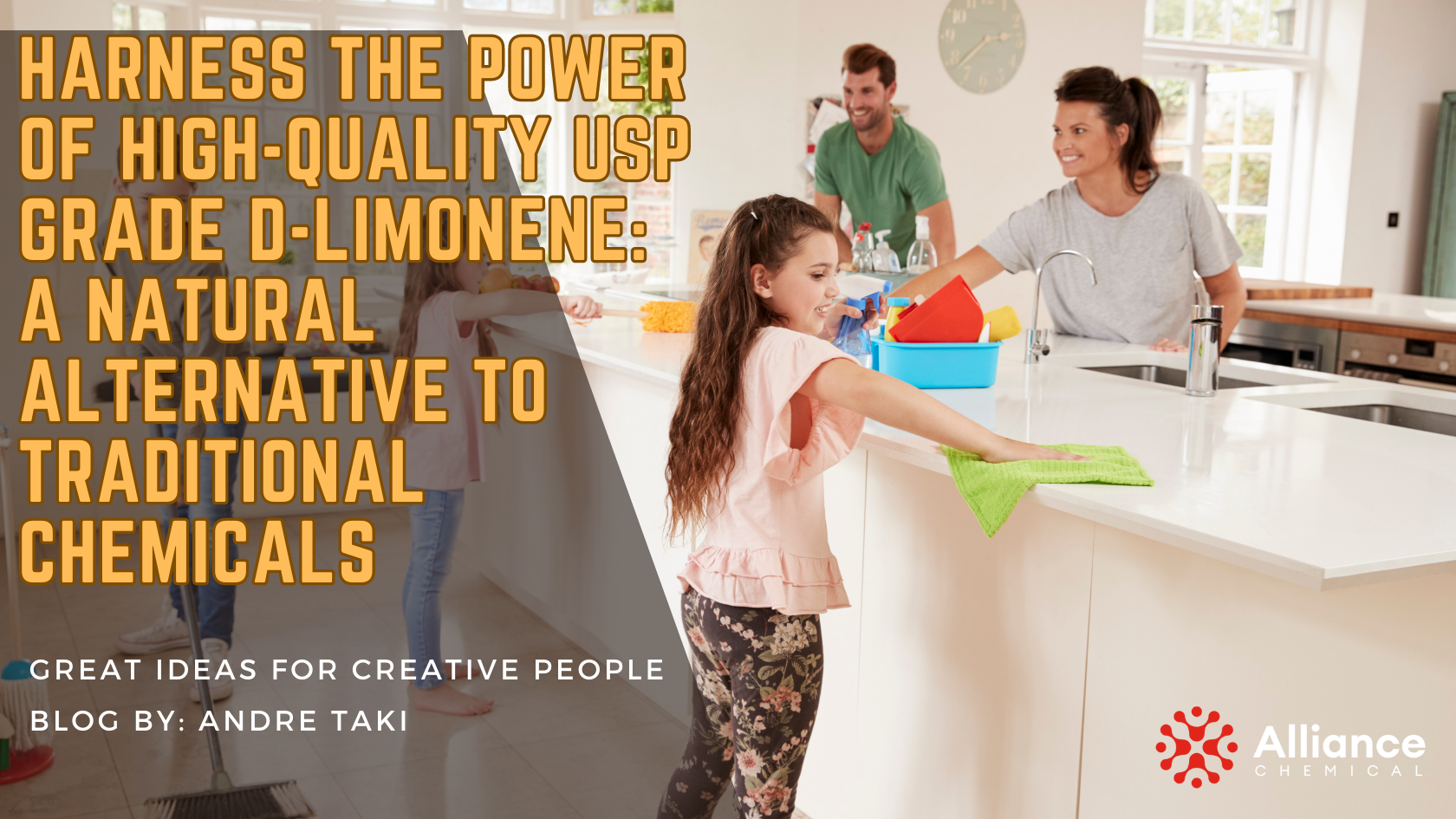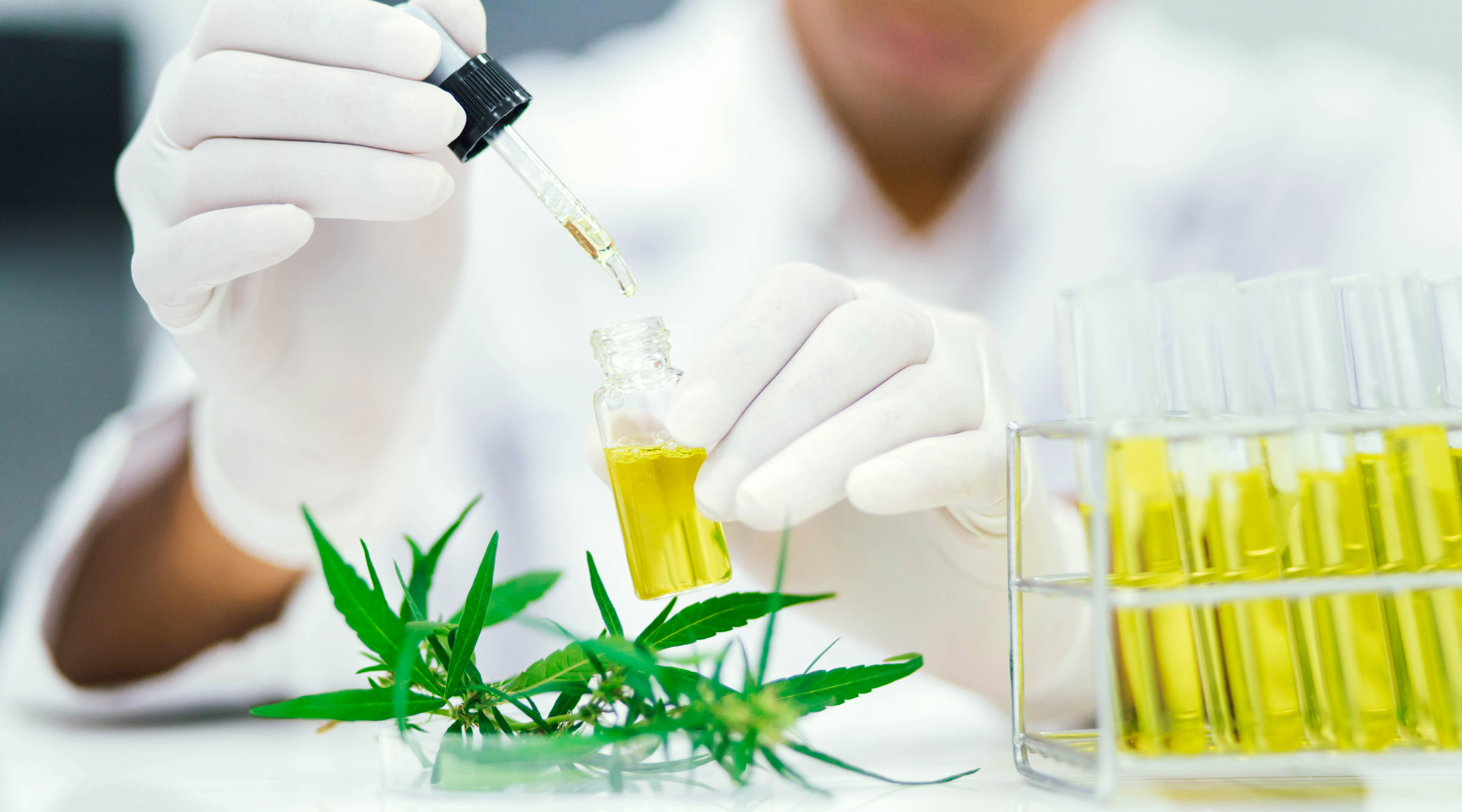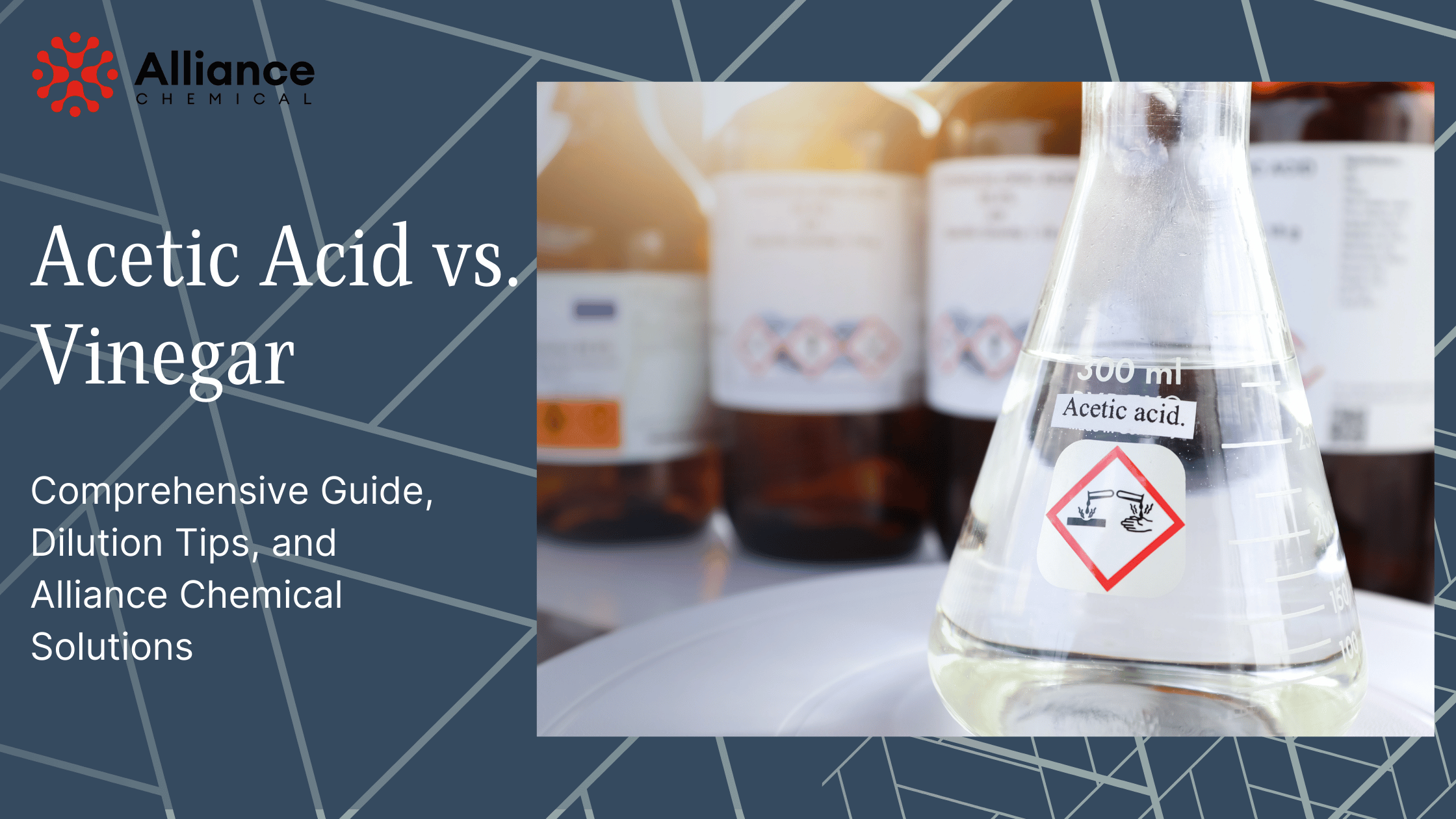
Harness the Power of High-Quality USP Grade D-Limonene: A Natural Alternative to Traditional Chemicals
Discover the Benefits of D-Limonene and How It Compares to Common Chemicals in Cleaning and Industry
In a world increasingly conscious of environmental impact and personal health, the demand for natural and eco-friendly solutions has never been higher. One such solution gaining significant attention is D-Limonene, a versatile compound derived from citrus fruits. This article delves deep into the myriad benefits of high-quality USP grade D-Limonene, its connection to orange essential oil, and how it stands up against common industrial chemicals in cleaning and other applications. By understanding the properties and advantages of D-Limonene, you can make informed choices that benefit both your health and the environment.
Table of Contents
- What is D-Limonene?
- The Origins and Production of D-Limonene
- Applications of D-Limonene
- D-Limonene in Aromatherapy and Cosmetics
- D-Limonene as a Flavoring Agent
- D-Limonene: A Natural Cleaner and Degreaser
- Therapeutic Uses and Health Benefits
- Comparing D-Limonene to Common Chemicals
- Choosing the Right Cleaning Solution
- D-Limonene's Antifungal Properties
- Safety and Handling of D-Limonene
- Environmental Impact of D-Limonene
- Case Studies and Success Stories
- Conclusion
1. What is D-Limonene?
D-Limonene is a naturally occurring compound classified as a terpene, which is found predominantly in the rinds of citrus fruits like oranges, lemons, limes, and grapefruits. It is responsible for the characteristic refreshing and zesty aroma associated with these fruits. As a major component of orange essential oil, D-Limonene has been utilized for centuries in various applications due to its pleasant scent and potent solvent properties.
In its pure form, D-Limonene is a colorless liquid hydrocarbon classified as a cyclic monoterpene. It is considered safe for use in food, cosmetics, and therapeutic products when appropriately purified and handled. The compound is biodegradable and has a relatively low toxicity profile, making it an attractive alternative to synthetic chemicals in many industries.
"D-Limonene is nature's versatile gift—a fragrant compound with the power to clean, heal, and uplift."
2. The Origins and Production of D-Limonene
Extraction from Citrus Rinds
The primary source of D-Limonene is the oil extracted from citrus fruit rinds. The extraction process typically involves cold pressing or steam distillation:
- Cold Pressing: This mechanical process involves squeezing the citrus peels to release the oils, preserving the delicate aromatic compounds without the use of heat.
- Steam Distillation: Steam passes through the citrus peels, vaporizing the volatile compounds, which are then condensed back into liquid form.
The result is a concentrated oil rich in D-Limonene, ready for refinement and use in various applications.
Purification and Grading
After extraction, the oil undergoes purification to isolate D-Limonene and remove impurities. The degree of purification determines the grade:
- Technical Grade: Suitable for industrial applications where high purity is not critical.
- USP Grade: Meets the standards of the United States Pharmacopeia, ensuring high purity suitable for food, cosmetic, and pharmaceutical uses.
At Alliance Chemical, we offer high-quality USP grade D-Limonene, ensuring safety and efficacy for your needs.
3. Applications of D-Limonene
D-Limonene's versatility stems from its unique chemical properties. Its pleasant citrus aroma, solvent capabilities, and biological activities make it valuable across various industries.
3.1. Industrial Solvent
Due to its ability to dissolve oils, greases, and resins, D-Limonene is an effective natural solvent used in:
- Cleaning Products: Formulations for household and industrial cleaners.
- Adhesive Removers: Effective in removing labels, stickers, and gums.
- Paint Strippers: An eco-friendly alternative to harsh chemicals.
3.2. Food and Beverages
As a flavoring agent, D-Limonene adds a citrus note to:
- Beverages: Sodas, juices, and alcoholic drinks.
- Confectionery: Candies, gums, and baked goods.
- Supplements: Encapsulated for dietary supplements.
3.3. Cosmetics and Personal Care
Its aroma and potential skin benefits make it popular in:
- Fragrances: Perfumes and colognes.
- Skincare Products: Creams, lotions, and serums.
- Hair Care: Shampoos and conditioners.
3.4. Therapeutic Uses
D-Limonene exhibits potential health benefits:
- Aromatherapy: Used in essential oil diffusers for relaxation.
- Alternative Medicine: Investigated for antioxidant and anti-inflammatory properties.
"From cleaning grime to uplifting moods, D-Limonene proves that natural solutions can be powerful and multifaceted."
4. D-Limonene in Aromatherapy and Cosmetics
The Power of Citrus Aroma
The invigorating scent of D-Limonene makes it a favorite in aromatherapy. Its aroma is believed to:
- Elevate Mood: Promote feelings of happiness and well-being.
- Reduce Stress: Alleviate anxiety and tension.
- Enhance Focus: Improve alertness and concentration.
Skin Benefits
In skincare, D-Limonene offers several advantages:
- Antioxidant Properties: Helps protect skin from free radical damage.
- Anti-inflammatory Effects: Reduces redness and irritation.
- Antimicrobial Activity: Assists in combating acne-causing bacteria.
Incorporating D-Limonene into cosmetics provides a natural alternative to synthetic additives, appealing to consumers seeking clean beauty products.
5. D-Limonene as a Flavoring Agent
Enhancing Taste Naturally
The fresh, citrusy taste of D-Limonene makes it an ideal flavoring agent:
- Food Industry: Used in candies, baked goods, and savory dishes.
- Beverages: Adds zest to sodas, juices, and cocktails.
- Nutritional Supplements: Masks unpleasant flavors in vitamins and herbal formulations.
Regulatory Approval
D-Limonene is generally recognized as safe (GRAS) by the U.S. Food and Drug Administration (FDA), allowing its use within specified limits in food and beverage products.
"Nature's flavor enhancer, D-Limonene, brings the zest of citrus to our palates without artificial additives."
6. D-Limonene: A Natural Cleaner and Degreaser
Powerful Solvent Properties
D-Limonene's effectiveness as a solvent is due to its ability to break down hydrocarbons. This makes it a formidable cleaner for:
- Grease and Oil Removal: Effective in kitchens, garages, and industrial settings.
- Adhesive Residue: Removes labels, tape, and sticker residues.
- Tar and Asphalt: Cleans equipment and tools exposed to heavy-duty substances.
Eco-Friendly Cleaning Solutions
As consumers and industries shift towards sustainable practices, D-Limonene stands out for its environmental benefits:
- Biodegradable: Breaks down naturally without harming ecosystems.
- Low Toxicity: Safer for users compared to harsh chemicals like mineral spirits or acetone.
- Renewable Resource: Derived from citrus waste products, promoting waste reduction.
Our Technical Grade D-Limonene is ideal for industrial cleaning applications, offering both power and peace of mind.
7. Therapeutic Uses and Health Benefits
Antioxidant and Anti-inflammatory Effects
Studies suggest that D-Limonene may have health-promoting properties:
- Antioxidant: Neutralizes free radicals, potentially reducing the risk of chronic diseases.
- Anti-inflammatory: May alleviate inflammation-related conditions.
Digestive Support
D-Limonene has been explored for its potential to ease digestive issues:
- Gastroesophageal Reflux Disease (GERD): May help relieve symptoms by neutralizing gastric acid.
- Gallstones Prevention: Could aid in dissolving cholesterol-containing gallstones.
Anticancer Potential
Preliminary research indicates that D-Limonene may have anticancer properties:
- Apoptosis Induction: Promotes the death of cancerous cells.
- Inhibition of Tumor Growth: May slow down the proliferation of cancer cells.
While promising, more clinical studies are needed to fully understand these effects.
"D-Limonene bridges the gap between nature and wellness, offering potential benefits that modern science continues to explore."
8. Comparing D-Limonene to Common Chemicals
A. Isopropyl Alcohol and Rubbing Alcohol
Isopropyl alcohol (IPA) is widely used as a disinfectant and solvent. While effective, it has drawbacks:
- Flammability: Highly flammable, posing storage and handling risks.
- Odor: Strong, medicinal smell that can be unpleasant.
- Drying Effect: Can strip oils from surfaces and skin.
Advantages of D-Limonene over Isopropyl Alcohol:
- Pleasant Aroma: Refreshing citrus scent enhances user experience.
- Moisturizing Properties: Less drying on the skin.
- Natural Origin: Biodegradable and derived from renewable resources.
B. Hydrochloric Acid and Muriatic Acid
Hydrochloric acid is a potent chemical used for heavy-duty cleaning and pH adjustment. However, it poses significant risks:
- Corrosiveness: Can cause severe burns on contact with skin or eyes.
- Toxic Fumes: Releases harmful vapors that can damage respiratory systems.
- Environmental Hazard: Dangerous if released into waterways.
Advantages of D-Limonene over Hydrochloric Acid:
- Safety: Lower risk of burns and inhalation hazards.
- Environmental Impact: Biodegradable and less harmful to ecosystems.
- User-Friendly: Easier to handle without specialized equipment.
C. Sodium Hydroxide and Caustic Soda
Sodium hydroxide is used in industrial cleaning and manufacturing but carries dangers:
- Extreme Corrosiveness: Can cause severe chemical burns.
- Reactivity: Reacts violently with acids and water, releasing heat.
- Disposal Concerns: Requires careful neutralization and disposal.
Advantages of D-Limonene over Sodium Hydroxide:
- Mildness: Less harsh on surfaces and skin.
- Non-reactive: Safer to mix with other cleaning agents.
- Eco-Friendly: Easier to dispose of responsibly.
D. 2-Butanone (Methyl Ethyl Ketone)
2-Butanone is a solvent used in coatings and adhesives but has health and safety concerns:
- Volatile Organic Compound (VOC): Contributes to air pollution and smog formation.
- Health Risks: Can cause irritation and central nervous system effects upon inhalation.
- Flammability: Highly flammable liquid and vapor.
Advantages of D-Limonene over 2-Butanone:
- Lower Toxicity: Safer for users and the environment.
- Biodegradable: Breaks down naturally without persistent pollutants.
- Renewable Source: Derived from citrus waste, reducing reliance on petrochemicals.
"When comparing D-Limonene to common industrial chemicals, the benefits of a natural, safer alternative become clear."
9. Choosing the Right Cleaning Solution
Assessing Your Needs
Consider the following factors when selecting a cleaning agent:
- Effectiveness: Does it meet the cleaning requirements?
- Safety: Is it safe for users and surfaces?
- Environmental Impact: How does it affect the environment during use and disposal?
- Cost: Is it cost-effective for the intended application?
The Case for D-Limonene
D-Limonene offers a balance of effectiveness and safety:
- Versatility: Suitable for various cleaning tasks.
- User-Friendly: Pleasant scent and lower health risks.
- Sustainability: Supports eco-friendly practices.
For those seeking to reduce their carbon footprint and promote a healthier environment, D-Limonene is a compelling choice.
10. D-Limonene's Antifungal Properties
Combating Mold and Mildew
D-Limonene exhibits antifungal activity against common household fungi:
- Mold Removal: Effective in cleaning mold from surfaces in bathrooms, kitchens, and basements.
- Preventative Measures: Regular use can inhibit the growth of mold and mildew.
Applications in Personal Care
Its antifungal properties extend to personal hygiene products:
- Foot Care: Incorporated into creams and sprays to combat athlete's foot.
- Skin Treatments: Used in formulations targeting fungal skin infections.
"Harnessing the natural antifungal power of D-Limonene offers a gentle yet effective solution to common fungal problems."
11. Safety and Handling of D-Limonene
General Safety Guidelines
While D-Limonene is considered safe, proper handling is essential:
- Skin Contact: May cause irritation or sensitization in some individuals. Wear gloves when handling concentrated forms.
- Inhalation: Use in well-ventilated areas to avoid respiratory irritation from vapors.
- Eye Contact: Can cause irritation; wear protective eyewear if necessary.
Storage and Disposal
- Storage: Keep in a cool, dry place away from direct sunlight and heat sources.
- Container Integrity: Store in appropriate, labeled containers to prevent leaks and contamination.
- Disposal: Follow local regulations for disposing of organic solvents.
Regulatory Compliance
Ensure compliance with relevant regulations:
- Workplace Safety: Adhere to Occupational Safety and Health Administration (OSHA) guidelines.
- Transportation: Follow Department of Transportation (DOT) regulations for shipping.
For detailed safety information, consult the Safety Data Sheet (SDS) provided by the manufacturer.
12. Environmental Impact of D-Limonene
Sustainability Benefits
D-Limonene's environmental advantages include:
- Renewable Resource: Derived from citrus waste, promoting recycling and waste reduction.
- Biodegradability: Breaks down naturally, minimizing long-term environmental impact.
- Reduced Emissions: Lower VOC content compared to some petrochemical solvents.
Considerations
Despite its benefits, responsible use is important:
- Aquatic Toxicity: Can be harmful to aquatic life in concentrated forms; avoid releasing large amounts into waterways.
- Proper Disposal: Prevent environmental contamination by following disposal guidelines.
"Choosing D-Limonene aligns with a commitment to environmental stewardship, embracing solutions that work in harmony with nature."
13. Case Studies and Success Stories
Industrial Cleaning Applications
Many industries have successfully integrated D-Limonene:
- Manufacturing Plants: Replaced hazardous solvents with D-Limonene-based cleaners, improving worker safety.
- Automotive Shops: Used for degreasing engines and parts without damaging components or posing health risks.
Consumer Products
Brands have leveraged D-Limonene in their offerings:
- Eco-Friendly Cleaners: Products featuring D-Limonene as a primary ingredient have gained popularity among environmentally conscious consumers.
- Natural Cosmetics: Skincare lines highlighting citrus-derived ingredients appeal to those seeking natural beauty solutions.
Healthcare and Wellness
Practitioners and patients have reported positive experiences:
- Aromatherapy Practices: Incorporation of D-Limonene-rich oils enhanced relaxation and mood in therapeutic settings.
- Digestive Health: Individuals using D-Limonene supplements noted improvements in digestive comfort.
"Real-world successes underscore D-Limonene's potential to revolutionize practices across industries, benefiting people and the planet."
14. Conclusion
High-quality USP grade D-Limonene stands out as a versatile, effective, and environmentally friendly alternative to many traditional chemicals used in cleaning, industry, aromatherapy, and beyond. Its natural origin, coupled with a broad spectrum of applications, makes it an invaluable asset for both personal and professional use.
By choosing D-Limonene, individuals and businesses not only enhance performance and user experience but also contribute to a more sustainable and health-conscious world. As we continue to seek solutions that align with ecological responsibility and personal well-being, D-Limonene shines as a testament to the power of nature harnessed through science.
Explore our range of D-Limonene products at Alliance Chemical and join the movement towards safer, greener alternatives.
"Embrace the zest of innovation with D-Limonene—where natural meets effective."
References
- D-Limonene USP Grade | Alliance Chemical
- U.S. Food and Drug Administration (FDA)
- Occupational Safety and Health Administration (OSHA)
- PubChem - Limonene
- Environmental Protection Agency (EPA)
- ScienceDirect - Limonene Topics
- Nature - Scientific Research on D-Limonene
For more insights, products, and support, visit our blog and explore our extensive catalog at Alliance Chemical.









